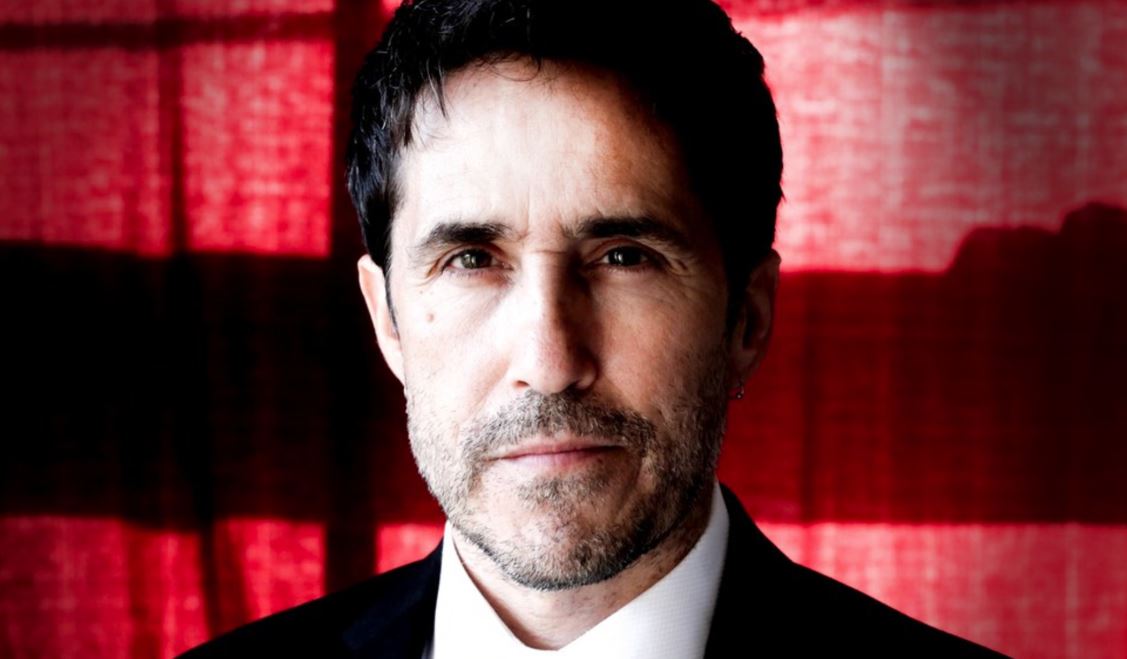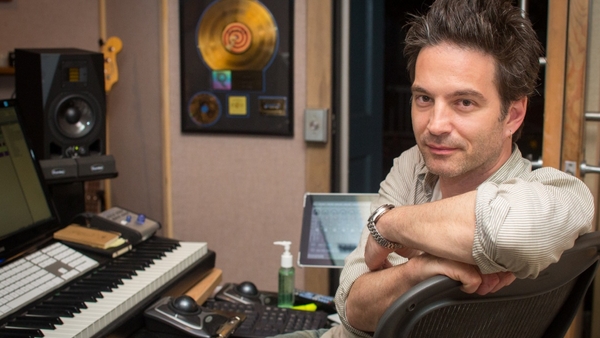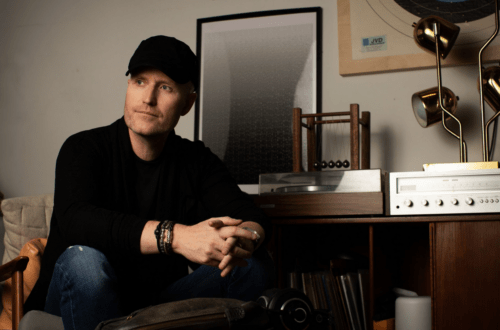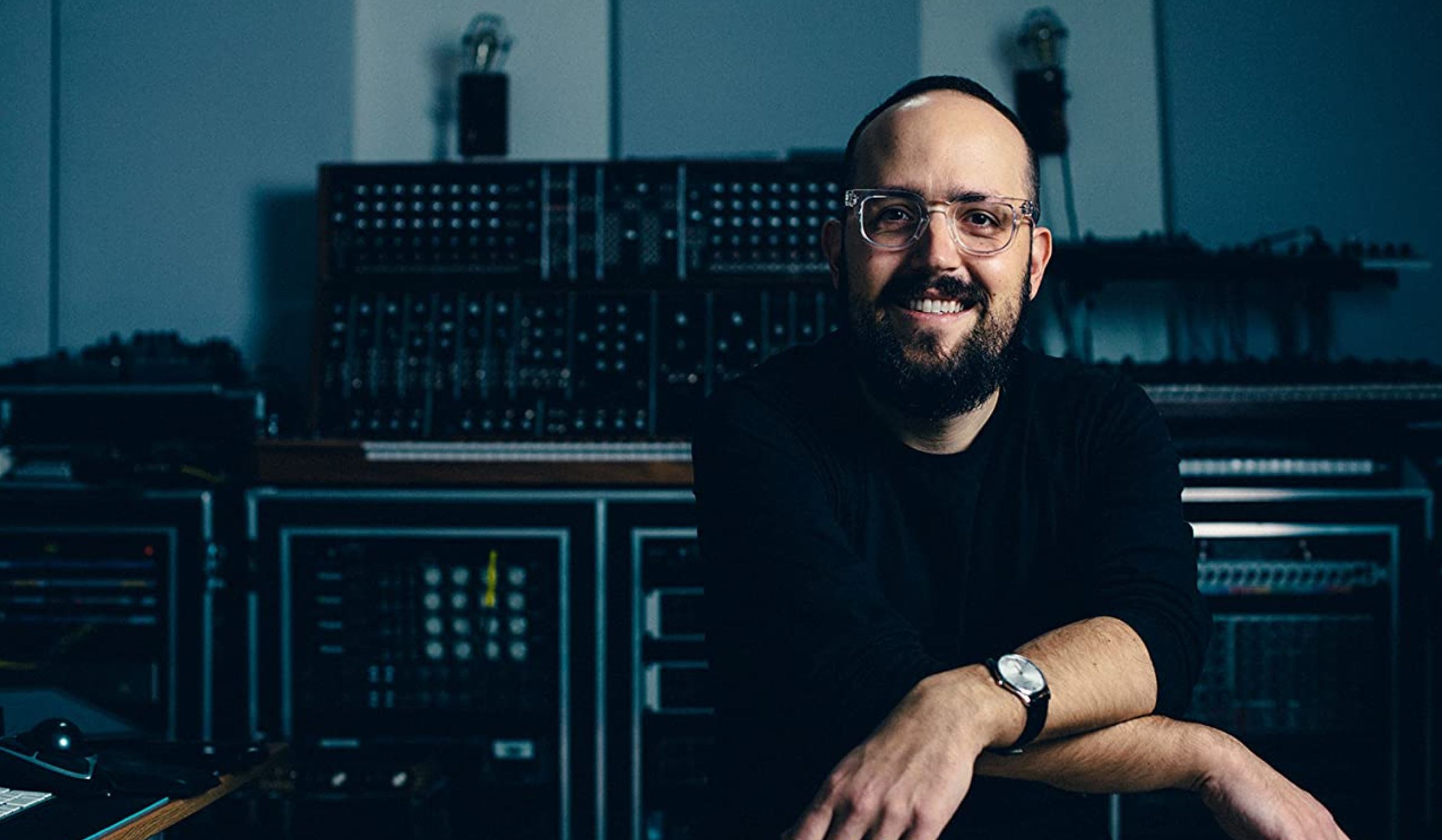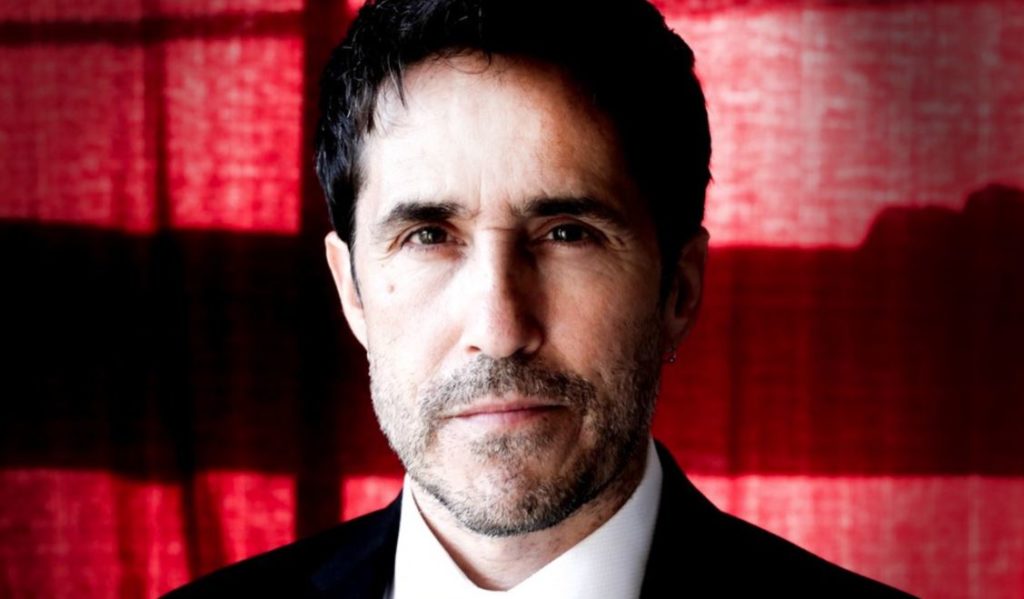
Composer Mac Quayle is a musician we’ve followed for years. And if you’ve kept up with his output, he’s quite hard to keep track of. One thing is for sure: Mac is very busy and very much in demand. He’s recently worked on four seasons of American Horror Story, as well as Mr. Robot, Feud: Bette and Joan, Pose and now he’s venturing into Netflix territory. The common thread between him and his prolific output is the equally prolific Ryan Murphy.
One thing Mac prides himself on is the distinctive palette he creates and brings to each project. In the case of a show like AHS, that palette changes from season to season causing Quale to come up with something new each time. I guess there’s no easy road for composers these days.
On September 27, Ryan Murphy’s latest show hits Netflix. The Politician (which stars Gwyneth Paltrow, Jessica Lange and Ben Platt), follows Payton Hobart, a wealthy student from Santa Barbara, who has dreamed of becoming president of the United States since the age of 7 but must first navigate the most treacherous political landscape of all: Saint Sebastian High School.
Ahead of the premiere, and we got to speak with Mac all about the unique yet rather obvious flavor of his score for the show. We were excited to catch up with Mac again – in 2015, we had a very insightful discussion about his stellar work on Sam Esmail’s brilliant hacker drama, Mr. Robot. We got the opportunity to debut an exclusive track from the score. So check it out below, and enjoy our time with Mac.
GoSeeTalk: A lot has happened in your world since last we spoke. How have you been, and do you have any time for fun?
Mac Quayle: I feel like I’ve been strapped on to a rocket for five years. There really hasn’t been a lot of down time. [Laughs] I have a family, and two small kids, and it’s all about working and being with the kids. It’s pretty intense, I’ll be very honest. Since we talked in 2015, I’ve done so many shows, and currently I’m working on four right now. [Laughs] That’s kind of a lot all at once.
What do you do to keep them separated, and make sure your notes and cues from one project don’t spill into each other? Do you sleep?
Well, I do have help. [Laughs] There’s no way anyone could do all that on their own, and I do have very talented composers that are assisting me – writing additional music, collaborating – and I really make an effort to make each project sound different. Each show will get a sound created for it – its own musical universe – and I don’t use those sounds on any other projects. You have orchestral sounds on various projects, but something that is unique like Mr. Robot, or some of the American Horror Story seasons, I keep walls up in between each project in the hopes they can sound different from one another.
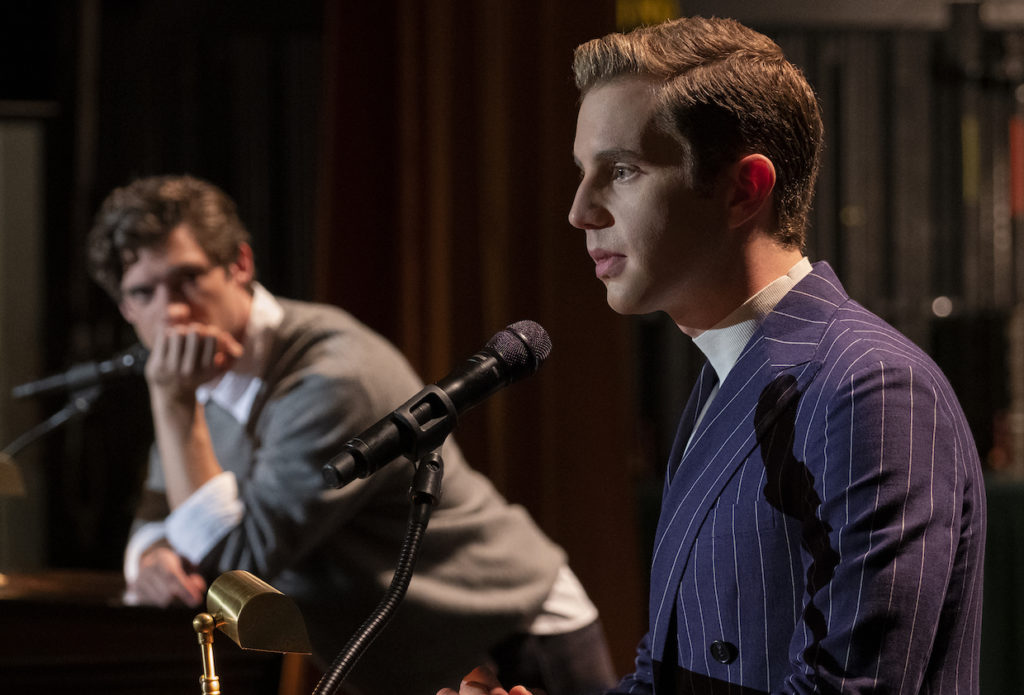
It’s hard for me to keep up with TV shows, but have there really been 8 seasons of American Horror Story?
8 seasons have aired, and the 9th premiered this month. So, yeah there are a lot. I came on board for season 4, so I wasn’t there from the very beginning, but it’s by far the longest running thing I’ve done having worked on seasons 4 through 8 and now I’m pretty deep into season 9. What has made this show continually interesting for me is that each season is completely different; there are different stories, cast, characters, and time periods. It’s almost like starting over. There’s something the music has to do in all of the seasons – it has to tell the story, and it has to scare the viewers – but it gets do it in a fresh way each time.
You like working with electronic instruments, so how has that helped you from season to season?
The music in that show has always had some electronic component. Depending on the season, we’ve either veered to a very electronic sound, or more towards an organic sound. It’s all depended on the season.
These days, sample libraries are so good that I just can’t tell what’s real, and what’s in a sound suite.
The origin of how the sound is produced is almost exclusively electronic. I have recorded some live instruments on American Horror Story, but it’s always been a few supplemental things here and there. The rest have been generated electronically, whether the sound that’s produced sounds like a synthesizer, or it sounds like a real string section or a piano.
I started diving back into Mr. Robot, and one cue just hits me. Something about the notes or the composition of URtheGod.Mod get the track stuck in my head. As a composer, what sounds, notes or something else just appeal to you or inspire you to keep writing?
When I discover a new sound I’ve never heard before, or one I created, and I find to be an interesting combination of sounds – usually through experimentation – there’s a kind of magic that happens where I feel like I’ve stumbled on to a particular mood or particular rhythm and that’s very exciting to me. When that happens, that makes it worthwhile. [Laughs] It can also slow me down because when I hit on something that excites me, I just want to keep playing with it over and over instead of continuing to write the piece of music. The process of discovery is pretty rewarding, but the actual discovery of something is what really gets me excited.
Do the discoveries become more frequent now that you have more help, or do you still try to figure them out behind closed doors?
It varies. The discoveries can happen all over the place – in collaboration or, like you said, behind closed doors. Sometimes it doesn’t happen because, based on the schedule, something has to happen just get the music out the door. It’s not always accompanied by that magic feeling of discovery. I’m not sure if that’s just my mood at the moment, or that piece wasn’t as special as the others. Thankfully it does still happen often, but it can be hard to predict when or how.
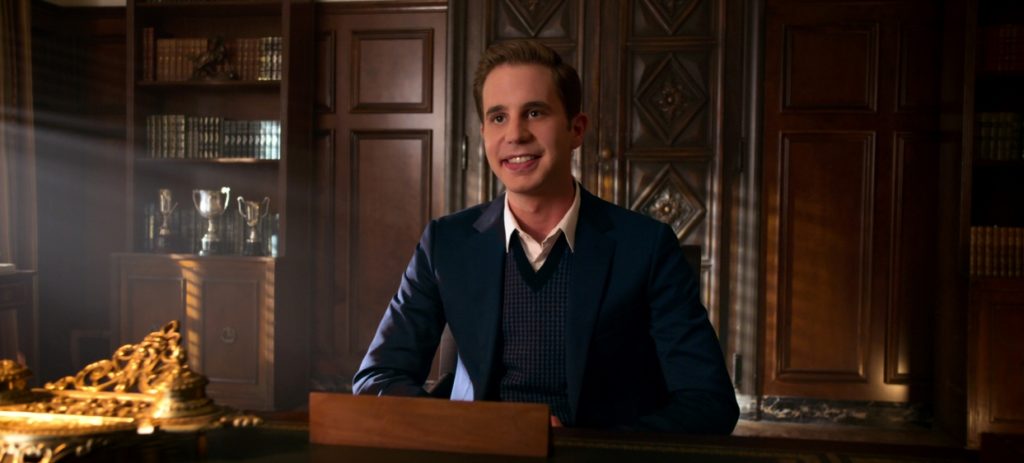
The Politician drops on Netflix at the end of this month. If these characters are set in present-day Santa Barbara, why does it feel like they are gun fighters preparing for a battle in Old Mexico? How did you decide on guitars, and the plucky feel to it?
[Laughs] I really like what you heard in the music. The Spanish and Latin flavor is something we sprinkled into the music. There’s one track that is a straight up flamenco track, but the rest of the Spanish influences are like one little spice in the recipe. It was an idea that came up to essentially speak to the setting of being in Santa Barbara. Santa Barbara has a huge Spanish history and we thought we’d try it. Once we did, we really liked what it did, and I think when we first discovered that, it was on a slower cue and it worked.
But as we started developing that, we discovered what you call the gunslingers preparing for battle in Old Mexico, we found this bravado that does end up speaking to the characters in this show. The show is about a high school senior who has unlimited ambition for politics, and will go to any length to get it. It’s almost like he’s going into battle, and, like I said before about discovery, it worked.
I feel like we couldn’t have planned it. It’s not particularly obvious on paper. [Laughs] If you would have said that in a pitch meeting, you probably would have gotten laughed at. We didn’t know what we were going to get until we started working on the first episode, but we found that sound and it really worked.

“Differently Abled”
from THE POLITICIAN
Ryan Murphy usually directs the pilot episode of each shows he creates. When do you get a feel of what the show needs?
I typically start the process by reading the script, and I do get information from that. I get introduced to the characters, and the story and I usually read the first few episodes just to get an idea of what’s ahead. But I find I can’t really get enough information to get going musically. I need to see something, and once I get that first cut of the episode, that’s when things will really reveal themselves. Up to that point, there’s been a conversation with Ryan and his team about ideas, and then we try to implement them to see where they lead.
When I have some ideas that are ready to be reviewed, we’ll watch and listen and see if we’re on the right track, or if we need to start over, or we have to nudge things slightly. Through that process, which may repeat a number of times, we end up with the sound. Once you have that sound, it becomes relatively simple.
You have a small palette of instruments that sound like of a plucky chamber orchestra. This is a “comedy” even though there’s some real dark material. How comfortable are you with comedy?
I think that this is a comedy, but it’s not a Mel Brooks comedy. It’s a very interesting tone they found for this show, and it’s funny and smart and fast and has some dark tones. So it didn’t feel like what you might expect to hear in a comedy score. It needed something fun, but in a way I never felt like I was scoring to be funny beats. Here and there, yes, to underscore some moments, but the score is there to keep things moving at a good pace which enhances the feeling of competitiveness between the various characters. It also adds to the mystery and makes it, at times, feel like a caper. We push the audiences buttons around all those things rather than just serving as the backdrop to make people laugh.
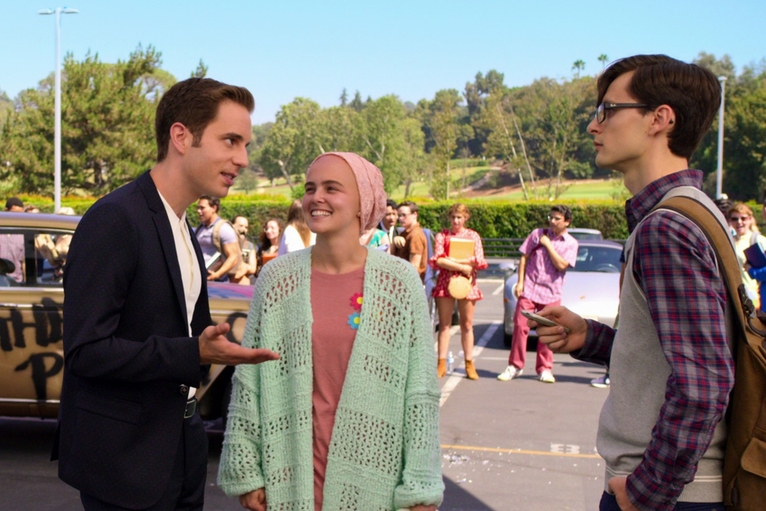
When you’re in the zone writing music, or under the gun to get something finished, what’s your creative fuel?
It’s funny, but what I find really helps quiet my mind, and get ideas percolating is walking the dog. I live in the Hollywood Hills, and I’m way up there, and it’s beautiful and quiet. If there’s some sort of musical problem I’ve been trying to figure out, it suddenly will be revealed as I’m walking down the street.
Before you became a composer, you provided and remixed music for a lot of artists. Do you have a story about Sting?
I do, actually. I was very involved in dance music back in New York. My first career was making music as a producer, and a remixer, and I had a partner for several years. He was a DJ, and we did lots of remixes taking a song that could be any genre and turn it into something that could be played by a DJ in a night club. It was a totally new version. The last thing I worked on for Sting was one of his songs.
I had worked with someone else on a remix for Sting and it was great. He loved it, and everyone was very happy. But this last remix was a challenge because of the time signatures, and the particular feel of the song.
On paper, it didn’t really translate the kind of dance record we were known for. But when we did it, it actually worked great. It was interesting, and it worked as a great dance record. Then Sting got it and he turned it down. [Laughs] I guess he was more familiar with the song than anyone, and so he could only hear the song one way. Now that we had given it this other rhythm, he was just like, “No.”
So it didn’t get released, but a little while later it got passed around the underground DJ network. I heard it in the clubs a number of times, and it was great. It worked really well, so it was too bad that he couldn’t hear it.
Thanks to Mac for his time. You can check out The Politician on Netflix on September 27. Also, American Horror Story: 1984 premiered on September 18, and the fourth and final season of Mr. Robot will air on October 6.
For more info about Mac Quayle, click over to his official site at https://macquayle.com/ or follow him on Twitter.
Payton (Ben Platt) has always known that he’s going to be president. First he’ll have to navigate the most treacherous political landscape: high school.
